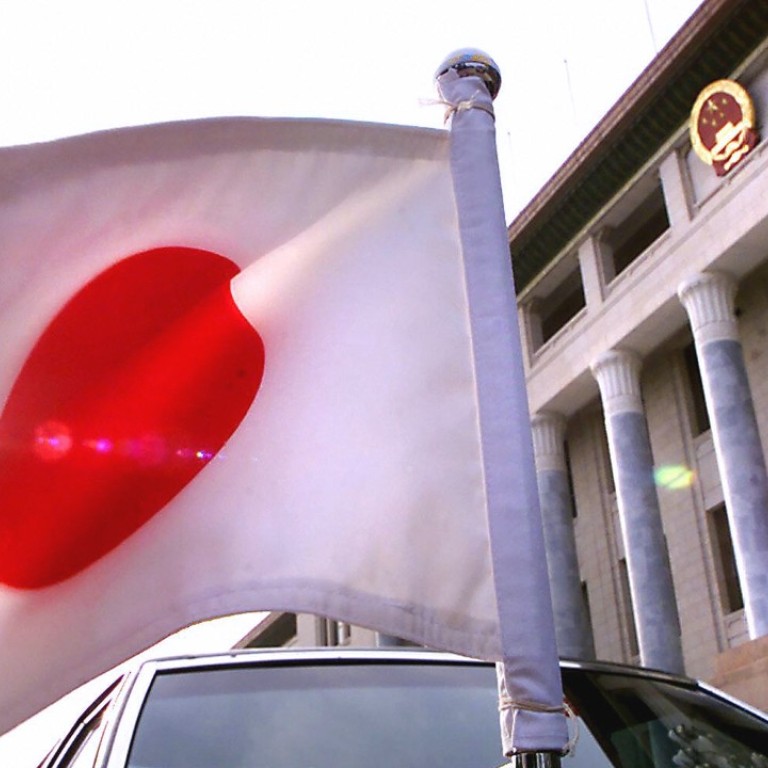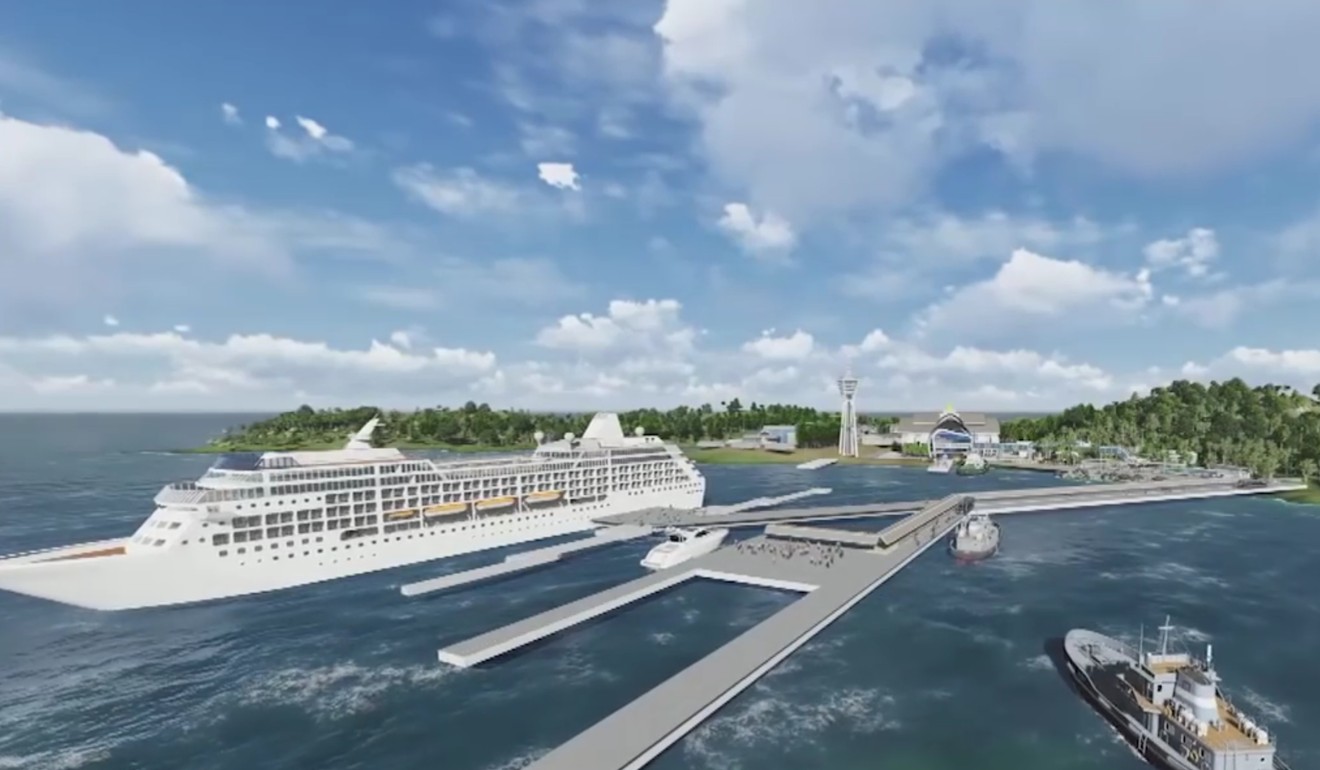
Trade war ‘pushes rivals China and Japan closer’ – on imports, talks and overseas infrastructure
High-level dialogue, cooperation on Thailand project and potential progress on imports as Beijing’s stand-off with United States continues
China is expected to team up with Japan on infrastructure investment in Southeast Asia, a sign that Beijing’s escalating trade war with Washington is pushing the two Asian rivals closer, according to diplomatic observers and sources.
Japanese Prime Minister Shinzo Abe is likely to visit Beijing next month, where the agenda is expected to include cooperation on agriculture, innovation and infrastructure projects in other countries, particularly along Thailand’s Eastern Economic Corridor, according to sources familiar with Japan-China relations.
The two nations have long had a strained relationship, with historical animosities stemming from Japan’s wartime occupation of China and an ongoing territorial dispute over a group of islets in the East China Sea, called the Senkakus by Japan and the Diaoyus by China.
Japan challenges China with submarine military exercise in South China Sea
As Washington turns up the trade war heat on China, however, Beijing and Tokyo have been warming to each other, most notably with the resumption of high-level dialogue.
In May, Chinese Premier Li Keqiang visited Tokyo, the first such trip by a Chinese premier in eight years. Late last month, high-level Japanese delegations travelled to Beijing, where Toshihiro Nikai, secretary general of Japan’s ruling Liberal Democratic Party, met Chinese Vice-President Wang Qishan.
Abe’s trip, the first to the Chinese capital by a Japanese prime minister since 2011, is likely to take place around October 23 – the 40th anniversary of the China-Japan treaty of peace and friendship taking effect – and would involve a Japanese delegation of 500 people from a range of business sectors, the source said.
“The trade war with the US has provided more incentives for China to improve relations with Japan,” said the source, who spoke on condition of anonymity because they were not authorised to disclose details of the visit.
“The Chinese side has become more active and eager to discuss wide-ranging cooperation with Japan in preparation for Prime Minister Abe’s visit.”

The source said Beijing had raised the idea of working with Tokyo on Thailand’s Eastern Economic Corridor,and that Chinese officials had become more open than in the past to discussing transparency, openness, economic viability and fiscal sustainability of projects related to President Xi Jinping’s signature “Belt and Road Initiative”.
The Thai government has been seeking international investors to support its flagship development project, which aims to turn Thailand’s eastern seaboard into a leading economic zone in Southeast Asia through expansion of ports and airports, and new railway links.
Shinzo Abe and Xi Jinping ‘pledge Japan and China will deepen cooperation’
“Japan has been ahead of China in terms of its investments in Thailand for many years, but by cooperating with Japan and learning from its experience, China will be able to strengthen its economic presence in Southeast Asia,” said Natee Taweesrifuengfung, a specialist on international relations at the Panyapiwat Institute of Management in Thailand.
As China looks to Japan to diversify its markets as a hedge against its trade war with the US, the two countries are also likely to discuss expanding China’s imports of Japanese agricultural products, according to the source.
Ahead of Abe’s visit, Japanese officials had also been appealing to China to ease or lift an import ban on food from 10 Japanese areas including Tokyo, the source added.
Meanwhile, Japan is seeking to diversify its export channels to ease the potential impact after a free-trade agreementsigned with the European Union in August, as well as the Comprehensive and Progressive Agreement for Trans-Pacific Partnership, which would bring an influx of European and Asia-Pacific agricultural products into the Japanese market, raising competition for Japanese producers.
“China is potentially a big export market, because demand for Japanese food has been rapidly on the rise in China,” the source said.
For Japan, the shift in attitude towards China’s belt and road projects would add momentum to its rapprochement with Beijing at a time of uncertainty caused by US President Donald Trump over the US’ commitment to a presence in Asia and its alliance with Japan, Liu Weidong, a specialist from the Chinese Academy of Social Sciences in Beijing, said.
But Liu also said China and Japan remained rivals, in particular on the security front.
On Monday, Japan’s Ministry of Defence announced that a Japanese submarine had for the first time joined a naval drill in the South China Sea, in an expansion of Japanese activity in the disputed waters claimed by China and other nations.
Japan denies submarine drill in South China Sea is a warning to Beijing
China’s foreign ministry has warned that Japan should act with caution and not in a way that could damage peace and stability in the region.
“How close China and Japan can be depends on Trump’s attitude towards the US’ alliance with Japan,” Liu said.
“Both China and Japan have been under pressure and are forced to reconcile,” he said. “But having such rapprochement doesn’t represent a fundamental change to the two countries’ dynamic, and Japan will have to balance its relations between China and the US.”

